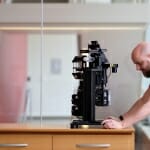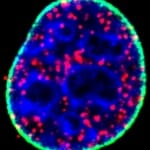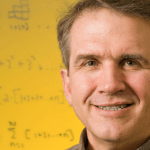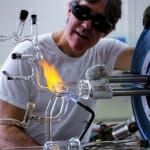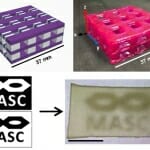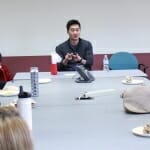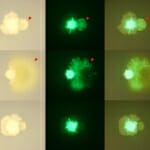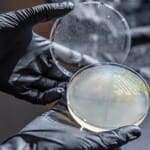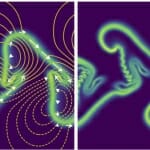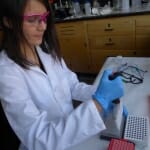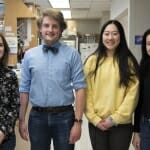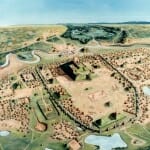Category Science & Technology
UW–Madison mathematicians named Simons Fellows
Andreas Seeger, Autumn Kent and Gheorghe Craciun are among 48 distinguished scientists named to the fellowships, which will help them “focus solely on research for the long periods often necessary for significant advances.” Read More
Have microscope, will travel: New tech project links Madison, Boston scientists
Researcher Jan Huisken’s vision is to redesign a high-end optical microscope — normally big enough to fill an entire room — down to the dimensions of a suitcase, with minimal loss of power or precision. Read More
UW–Madison researcher awarded “Make Our Planet Great Again” grant
Professor Carol E. Lee has just been awarded a grant from the French government to investigate the ability of plankton to evolve and adapt to a changing climate. Read More
Master glassblower’s art, work on exhibit at Madison Children’s Museum
Tracy Drier wants to increase interest in scientific glassblowing as a career choice by demonstrating the precision and artistry involved in constructing these delicate, almost ice-like glass instruments. Read More
Light provides control for 3D printing with multiple materials
UW-Madison researchers realized that a one-vat, multiple-component approach — similar to a chemist's one-pot approach when synthesizing molecules — would be more practical than multiple reservoirs with different materials in 3D printing. Read More
UW alum masterminding next generation data storage: A solution to the datapocalypse?
In a meeting at the Weinert Center for Entrepreneurship at the Wisconsin School of Business, Hyunjun Park said the device will hold digital information in DNA – life’s evolution-perfected “data storage” molecule. Read More
Quantum science at UW–Madison joins exchange, invests in faculty and students
“By the investments we are making in quantum science and technology," says Steve Ackerman, "we are ... leading the way in concepts and technology that may revolutionize computing, communication, security and more.” Read More
WARF bets big on new squad of drug hunters
“We are building a preclinical drug discovery organization,” says WARF Therapeutics Director Jon Young, who has worked in drug development at Merck Research Laboratories, Regulus Therapeutics and Celgene. Read More
Radiation-resistant E. coli evolved in the lab give view into DNA repair
Scientists in the University of Wisconsin–Madison Department of Biochemistry are blasting E. coli bacteria with ionizing radiation once a week to watch evolution happen in real time as the bacteria become radiation resistant. Read More
Ancient poop helps show climate change contributed to fall of Cahokia
A study provides a direct link between changes in Cahokia’s population size as measured through a unique fecal record and environmental data showing evidence of drought and flood. Read More
Two UW–Madison researchers awarded prestigious Sloan Fellowships
Sloan Research Fellowships are given to promising young researchers in the early stages of their careers. UW–Madison’s 2019 Sloan Fellows are mathematics professors Mihaela Ifrim and Botong Wang. Read More
Program empowers communities to overpower diabetes
A UW–Madison program aims to give African Americans in Milwaukee strategies to maintain healthy lifestyles that will help prevent and/or manage Type 2 diabetes. Read More



